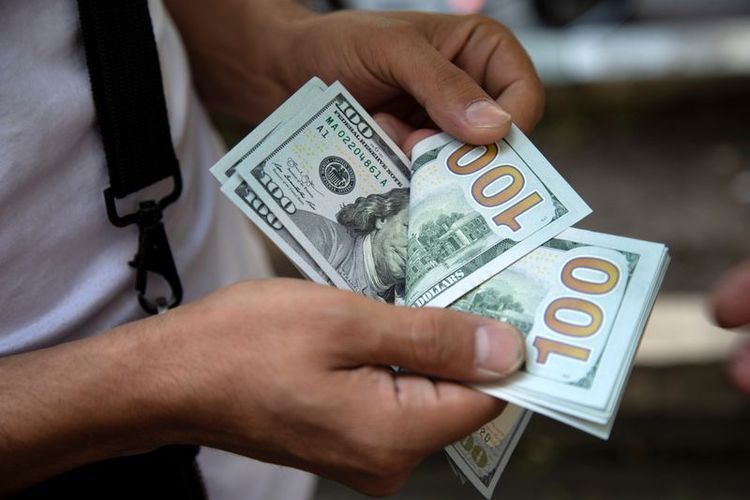Dollar slips from two-month high; sterling drops on weak retail sales

Investing.com - The U.S. dollar declined in the early stages of European trading on Friday, stepping back from its two-month peak. However, it remains likely to secure its fifth week of consecutive gains as the strong U.S. economy indicates the possibility of sustained higher interest rates.
At 03:20 Eastern Time (07:20 Greenwich Mean Time), the US Dollar Index, which monitors the value of the American currency compared to a selection of six other currencies, experienced a decrease of 0.2% and stood at 103.290. This drop occurred after reaching a peak of 103.59 overnight, the highest it had been in two months.
Dollar Set For Weekly Gain
The dollar has experienced some investors selling early on Friday, as confidence in taking risks has increased following the announcement from the People's Bank of China stating their commitment to injecting more money into the economy to aid in its recovery.
Nevertheless, over the course of the week, there is still an anticipated 0.5% increase in the dollar index due to growing beliefs that the U.S. Federal Reserve will uphold its restrictive approach for a longer period compared to previous assumptions.
The recently published data on Thursday demonstrated that the number of individuals filing for unemployment benefits in the United States decreased more than anticipated. This suggests that the labor market remains strong and allows for further increases in interest rates by the authorities.
This happened after the publication of the Federal Reserve's July meeting, which revealed that the majority of decision-makers favored increasing rates in order to tackle persistent inflation.
According to experts at ING, the analysts mentioned in their note that the minutes of the FOMC policy meeting in July indicated that most members still perceived possible increases in inflation and were willing to consider implementing further measures to address it.
Sterling Drops On Disappointing Retail Sales
decline of 0.3% to 1.2712 occurred as the British currency experienced a greater decrease than initially anticipated in July, plummeting by 1.2% compared to June's figures.
Consumers are undeniably experiencing the blow of elevated costs and a streak of 14 consecutive surges in prices. However, the ramifications of unfavorable climatic conditions throughout the period were also noticeable.
"Supermarkets experienced a tough month due to the disappointing summer weather along with the escalating expenses of daily life, resulting in slow sales for both clothing and food. Sales of department stores and household goods also witnessed a substantial decline," stated Heather Bovill, the Deputy Director for Surveys and Economic Indicators at ONS.
Eurozone To Release Inflation Figures
The currency moved downwards to 1.0868, which is not too far from its lowest point in six weeks, 1.0856 on Thursday. This drop comes as there are indications from President Christine Lagarde suggesting that the central bank might temporarily halt its ongoing campaign of raising interest rates, which has been going on for over a year, in the month of September.
That being mentioned, the newest version is scheduled to be released later during the session and is anticipated to display a yearly statistic of 5.3%. This represents a slight decrease from the 5.5% recorded in the previous month. This data indicates that it is still likely for there to be an increase by the end of the year.
Yuan Strengthened By Solid Support
In other regions, the rose increased by 0.1% and reached the value of 7.2864. The yuan currency was supported by the selling of dollars and strong central bank actions to stabilize its value. However, the future of the yuan is mostly pessimistic due to the possibility of decreased interest rates. This is mainly due to the challenges faced by the Chinese economy as a whole, and especially the struggling property sector.
The value of the yen decreased by 0.4% to reach 145.30, as the positive results of July bolstered the currency. This adds further stress on the Bank of Japan to initiate monetary policy tightening in the near future.







































